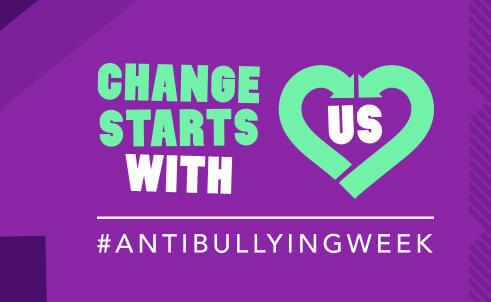Anti-Bullying Week 11 – 15 Nov
From 11th November to 15th November, schools and workplaces across the country will be raising awareness for Anti-Bullying week. Campaigns such as #ChooseKindness will be shared among students to encourage spreading positivity to classmates in defiance of bullying.
Bullying has consistently been an issue within schools, and with the rise of social media, it is often now taken home with the victim through online messaging, forums and anonymous postings. It has been found that victimisation has a direct link to a child’s severe mental health problems including self-harm and that these issues can persist into late adolescence and beyond (L Arseneault, L Bowes & S Shakoor, 2010).
Bullying does not only occur in schools but also in the workplace. Adult bullying can be just as harmful as in schools but can present itself in different ways. Often within the workplace or as adults it can present as manipulation, demeaning language or impulsive bullying during periods of stress for the victim. This can create hostile work environments and can disrupt the persons potential to continue to work. (Bullying Statistics)
Bullying Statistics (National Bullying Survey)
81% of young people experience name calling and 50% were bullied because of appearance.
90% said that bullying happened at school and 68% were bullied online.
40% young people have had suicidal thoughts 67% felt depressed as a result of being bullied, 39% have self-harmed.
73% said workplace bullying was verbal including threats and 60% said they experienced social bullying at work.
When experiencing bullying, it is important to have a person to reach out to and talk about these experiences with. This can be a friend, family member or counsellor. As long as they are a person that can be trusted and that may be able to provide support and help in that situation. At The Eaves we have a number of counsellors who specialise in working with children who may be experiencing bullying and also working with adult bullying. If you or someone you know may be experiencing bullying and would like further support, please call 01483 917000 or use the enquiry form on our website and a member of our referrals team would be happy to help source a counsellor through this difficult time.
References
http://www.bullyingstatistics.org/content/adult-bullying.html

